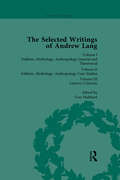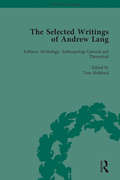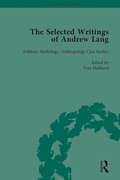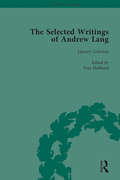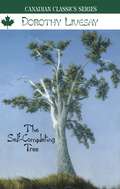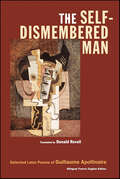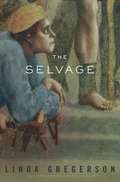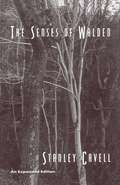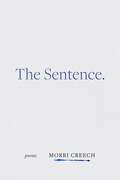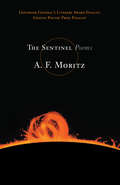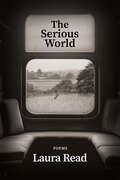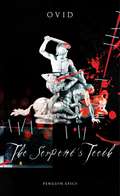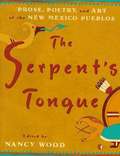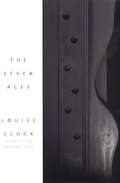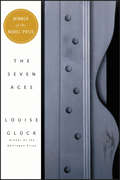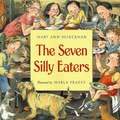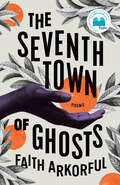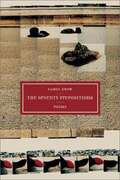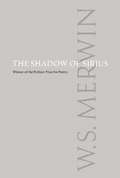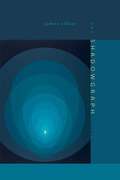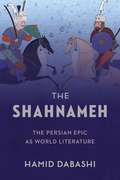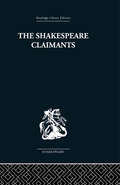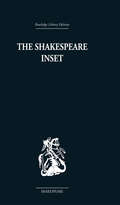- Table View
- List View
The Selected Writings of Andrew Lang (The Pickering Masters)
by Tom HubbardA novelist, poet, literary critic and anthropologist, Andrew Lang is best known for his publications on folklore, mythology and religion; many have grown up with the ‘colour’ Fairy Books which he compiled between 1889 and 1910. This three volume set presents a selection of his work in these areas. The first volume covers the general and theoretical aspects of Lang’s work on folklore, mythology and anthropology along with the tools and concepts which he used in his often combative contributions to these inter-related disciplines. As a companion to the first volume, the second is comprised of various case studies made by Lang, ranging from ‘The Aryan Races of Peru’ and ‘The Folk-lore of France’ to ‘Irish Fairies’ and ‘The Ballads, Scottish and English’. The third volume arranges his literary criticism, first by geo-cultural context and then chronologically. It begins with Lang’s views on the nature and purpose of fiction, then presents samples of his work on some of the most important authors in the respective canons of French, American, Scottish and English literature including Victor Hugo, Edgar Allan Poe, Robert Burns and Charles Dickens among many others, mainly of the nineteenth century. Collectively, the General Introduction to the set and the Introductions to the individual volumes offer a thorough overview of Lang’s work in an astonishing variety of fields, including his translation work on Homer and his contributions to historiography (particularly Scottish). The Introduction to Volume III sets Lang within the context of the literature of his times, comparing and contrasting him with significant contemporaries. Headnotes to the individual items are of varying length and provide more detail on specific topics, and explanatory notes supply unique intellectual comment rather than merely factual information.
The Selected Writings of Andrew Lang: Volume I: Folklore, Mythology, Anthropology; General and Theoretical (The Pickering Masters)
by Tom HubbardA novelist, poet, literary critic and anthropologist, Andrew Lang is best known for his publications on folklore, mythology and religion; many have grown up with the ‘colour’ Fairy Books which he compiled between 1889 and 1910. This three volume set presents a selection of his work in these areas. The first volume covers the general and theoretical aspects of Lang’s work on folklore, mythology and anthropology along with the tools and concepts which he used in his often combative contributions to these inter-related disciplines. Collectively, the General Introduction to the set and the Introductions to the individual volumes offer a thorough overview of Lang’s work in an astonishing variety of fields, including his translation work on Homer and his contributions to historiography (particularly Scottish). Headnotes to the individual items are of varying length and provide more detail on specific topics, and explanatory notes supply unique intellectual comment rather than merely factual information.
The Selected Writings of Andrew Lang: Volume II: Folklore, Mythology, Anthropology; Case Studies (The Pickering Masters)
by Tom HubbardA novelist, poet, literary critic and anthropologist, Andrew Lang is best known for his publications on folklore, mythology and religion; many have grown up with the ‘colour’ Fairy Books which he compiled between 1889 and 1910. This three volume set presents a selection of his work in these areas. As a companion to the first volume, the second is comprised of various case studies made by Lang, ranging from ‘The Aryan Races of Peru’ and ‘The Folk-lore of France’ to ‘Irish Fairies’ and ‘The Ballads, Scottish and English’. Collectively, the General Introduction to the set and the Introductions to the individual volumes offer a thorough overview of Lang’s work in an astonishing variety of fields, including his translation work on Homer and his contributions to historiography (particularly Scottish). Headnotes to the individual items are of varying length and provide more detail on specific topics, and explanatory notes supply unique intellectual comment rather than merely factual information.
The Selected Writings of Andrew Lang: Volume III: Literary Criticism (Routledge Historical Resources)
by Tom HubbardA novelist, poet, literary critic and anthropologist, Andrew Lang is best known for his publications on folklore, mythology and religion; many have grown up with the ‘colour’ Fairy Books which he compiled between 1889 and 1910. This three volume set presents a selection of his work in these areas. The third volume arranges his literary criticism, first by geo-cultural context and then chronologically. It begins with Lang’s views on the nature and purpose of fiction, then presents samples of his work on some of the most important authors in the respective canons of French, American, Scottish and English literature including Victor Hugo, Edgar Allan Poe, Robert Burns and Charles Dickens among many others, mainly of the nineteenth century. Collectively, the General Introduction to the set and the Introductions to the individual volumes offer a thorough overview of Lang’s work in an astonishing variety of fields, including his translation work on Homer and his contributions to historiography (particularly Scottish). The Introduction to Volume III sets Lang within the context of the literature of his times, comparing and contrasting him with significant contemporaries. Headnotes to the individual items are of varying length and provide more detail on specific topics, and explanatory notes supply unique intellectual comment rather than merely factual information.
The Self-Completing Tree
by Dorothy LivesayThe Self-Completing Tree is the author’s own collection of the best of her last 50 years of writing. In this new edition, the celebrated Grand Dame of English Canadian letters and award-winning poet uses the metaphor implied by the title — a tree, half verdant, half in flames — to symbolize the androgynous self. This is the theme of much of Livesay’s work and a central metaphor for the most definitive collection of her poetry. The result is a spiritual autobiography charting the fascinating domains of her own life and the universal struggles we all share.
The Self-Dismembered Man: Selected Later Poems of Guillaume Apollinaire (French Edition) (Wesleyan Poetry Series)
by Guillaume ApollinaireGuillaume Apollinaire's final years exactly coincided with the clamorous advent of European Modernism and with the cataclysms of WWI. In The Self-Dismembered Man, poet Donald Revell offers new English translations of the most powerful poems Apollinaire wrote during those years: poems of nascent surrealism, of combat and of war-weariness. Here, too, is Apollinaire's last testament, "The Pretty Redhead," a farewell to the epoch that he—as poet, convict, art-critic, artilleryman and boulevardier—did so much to conjure and sustain until his death on Armistice Day in 1918. Readers of Apollinaire's more familiar early work, Alcools (Wesleyan, 1995), will find here a darker and yet more tender poet, a poet of the broken world who shares entirely the world's catastrophe even as he praises to the end its glamour and its strange innocence. This English translation, facing the original French, illuminates Apollinaire's crucial and continuing influence on the European and American avant-garde. The volume includes a short translator's preface.
The Selvage
by Linda GregersonA magnificent new collection from National Book Award finalist and Kingsley Tufts Award winner Linda GregersonIn eloquent poems about Ariadne, Theseus, and Dido, the death of a father, a bombing raid in Lebanon, and in a magnificent series detailing Masaccio's Brancacci frescoes, The Selvage deftly traces the "line between" the "wonder and woe" of human experience. Keenly attuned to the precariousness of our existence in a fractured world--of "how little the world will spare us"--Gregerson explores the cruelty of human and political violence, such as the recent island massacre in Norway and "the current nightmare" of war and terrorism. And yet, running as a "counterpoint" to violence and cruelty is "The reigning brilliance / of the genome and / the risen moon . . . ," "The / arachnid's exoskeleton. The kestrel's eye." The Selvage is the boldest evidence yet that Linda Gregerson's unique combination of dramatic lyricism and fierce intelligence transcends current fashions to claim an enduring place in American poetry.
The Senses of Walden: An Expanded Edition
by Stanley CavellStanley Cavell, one of America's most distinguished philosophers, has written an invaluable companion volume to Walden, a seminal book in our cultural heritage. This expanded edition includes two essays on Emerson.
The Sentence: Poems
by Morri CreechIn The Sentence, Morri Creech interrogates our daily lives and experiences to examine the anxieties and despair that often attend our awareness of mortality. Through a variety of subjects, and through styles ranging from rhyme and meter to prose poetry, he takes an unflinching look at what it means to live in the shadow of the end, the common fate to which each of us is sentenced.
The Sentinel
by A.F. MoritzMortality, Love, Ethics, Civilization, Divine Presence, Human Body, Modernity, The Natural World, and Constructed Spaces. The Sentinel watches and reports back to us in a voice that is timeless and worthy of trust. Whether describing renewal and regeneration, the despair brought on by global capitalism, or a place where decay and loss meet their antithesis, A. F. Moritz's magisterial voice, rare insight, and supple craft are on impressive display.
The Serious World
by Laura ReadThe Serious World is a collection of epistolary poems written to Sylvia Plath about depression, therapy, friendship, family, and the struggling life of an artist. With humor, sensitivity, and deep reflection, Laura Read explores many themes including mental health, suicide, loss, feminism, motherhood, and aging, offering a fresh view of the world as seen through the feminist poet’s searching spyglass. Reaching back into history to talk with Plath and other historical figures who have suffered and wrote about their suffering, Read tries to make sense of what it’s like to be alive and suffering now. These deeply felt poems include language from Plath’s The Bell Jar and poems about Marguerite Duras and Simone de Beauvoir. Other strange bedfellows from pop culture also make appearances, among them Kenny Rogers, Dr. Seuss, Kurt Cobain, and Courtney Love.
The Serpent's Teeth
by OvidIn a world of gods and monsters, nothing is as it seems.When a deadly serpent's teeth are sown in the ground, warriors spring from the bloody soil. Only a great man can tame them and fulfil his destiny. Far away, Medusa, snakes writhing in her hair, meets her nemesis; the princess Andromeda is chained to a rock; people are transformed into owls, frogs, even mountains; a boy falls tragically in love with his own reflection.Enter a universe where love is cruel, men are destroyed by the gods and treachery is paid for in blood ...
The Serpent's Tongue: Prose, Poetry, and Art of the New Mexico Pueblos
by Willa Cather Tony Hillerman Oliver La Farge Paula Gunn Allen Nancy Wood Frank Hamilton Cushing Oliver LittlebirdThis landmark anthology chronicles more than 500 years of Pueblo culture. Lavishly designed in five colors, this eminently readable volume offers a story and mood for everyone and an authentic introduction to the cultural legacy of the ancient peoples of the Southwest.
The Seven Ages
by Louise GluckThe Seven Ages is Glück's ninth book, her strangest and most bold. In it she stares down her own death, and, in so doing, forces endless superimpositions of the possible on the impossible -- an act that simultaneously defies and embraces the inevitable, and is, finally, mimetic. Over and over, at each wild leap or transformation, flames shoot up the reader's spine.
The Seven Ages
by Louise GluckWinner of the Nobel Prize in LiteratureThe masterful collection from the acclaimed Pulitzer Prize-winning author of The Wild Iris and Vita Nova Louise Glück has long practiced poetry as a species of clairvoyance. She began as Cassandra, at a distance, in league with the immortal; to read her books sequentially is to chart the oracle’s metamorphosis into unwilling vessel, reckless, mortal and crude. The Seven Ages is Glück’s ninth book, her strangest and most bold. In it she stares down her own death, and, in doing do, forces endless superimpositions of the possible on the impossible—an act that simultaneously defies and embraces the inevitable, and is, finally, mimetic. over and over, at each wild leap or transformation, flames shoot up the reader’s spine.
The Seven Silly Eaters
by Marla Frazee Mary Ann HobermanPeter wants only milk, Lucy won't settle for anything but homemade lemonade, and Jack is stuck on applesauce. Each new addition to the household brings a new demand for a special meal. What's a mother to do?
The Seven-Walled Fort and Other Poems
by B. C. Ramachandra SharmaSharma's poetry makes heavy reading in Kannada.
The Seventh Town of Ghosts: Poems
by Faith ArkorfulCBC Poetry Prize finalist and National Magazine Award honoree Faith Arkorful&’s breathtaking, surpassingly thoughtful debut collection of poems.Hauntings form the canopy of The Seventh Town of Ghosts. These titular towns, centred in yesterdays, tomorrows, and the ongoing, lead to a special kind of singing: songs to the reader who wrestles with existence, the unsure peace within family, and the often-tense interdependence of life.Here, discernment is ever-present, guided by Faith Arkorful&’s insights on not only the ravages of the state and the police upon the Black family and life at large, but also on a kaleidoscope of connections—sisterhood, daughterhood, kinship, solitude, death, romance—and how tenderness, chosen and repeated, can shield against life&’s blows. These towns also enchant, shape-lifting through humour, irony, and the small refractions of language where Arkorful guides us through the fault lines and the undertow, in the form of fruit, island volcanoes, Formula 1, and the expansive hum of life.This poet-as-sojourner bears careful, caring witness, her attention reserved not only for her living and her dead but hyphenated two-fold by the fragile things and the lasting things. These poems remind us of what contours our mysterious and fleeting presence on Earth.
The Seventy Prepositions: Poems
by Carol SnowIn this volume, Snow continues to mine the language to its most mysterious depths and to explore the possibilities its meanings and mechanics hold for definition, transformation, and emotional truth. These poems place us before, and in, language--as we stand before, and in, the world.
The Shadow of Sirius
by W. S. MerwinThe nuanced mysteries of light, darkness, temporality, and eternity interweave throughout Merwin's newest collection of poems. "I have only what I remember," he admits, and his memories are focused and profound: well-cultivated loves, the distinct qualities of autumnal light, memories of Pennsylvania miners, a conversation with a boyhood teacher, and "our long evenings and astonishment." From the universe's chiaroscuro shadows, Merwin once again calls upon the language of surprise to illuminate existence. He is writing at the peak of his powers.<P><P> Pulitzer Prize Winner
The Shadowgraph: Poems (Mary Burritt Christiansen Poetry Series)
by James CihlarIn The Shadowgraph James Cihlar explores the ways images, performances, and memories shape and inform LGBTQ+ identity. Golden-age Hollywood cinema—in particular the career of fiercely independent actress Barbara Stanwyck—provides the screen on which Cihlar projects characters and stories bravely, even defiantly, performed. Cihlar&’s commentary on individual films—as well as on human experience and desire—is intense, smart, and right on target.
The Shadows of Poetry: Vergil in the Mind of Augustine (Transformation of the Classical Heritage #26)
by Sabine MacCormackImperial ceremony was a vital form of self-expression for late antique society. Sabine MacCormack examines the ceremonies of imperial arrivals, funerals, and coronations from the late third to the late sixth centuries A.D., as manifest in the official literature and art of the time. Her study offers us new insights into the exercise of power and into the social, political, and cultural significance of religious change during the Christianization of the Roman world.
The Shahnameh: The Persian Epic as World Literature
by Hamid DabashiThe Shahnameh, an epic poem recounting the foundation of Iran across mythical, heroic, and historical ages, is the beating heart of Persian literature and culture. Composed by Abu al-Qasem Ferdowsi over a thirty-year period and completed in the year 1010, the epic has entertained generations of readers and profoundly shaped Persian culture, society, and politics. For a millennium, Iranian and Persian-speaking people around the globe have read, memorized, discussed, performed, adapted, and loved the poem.In this book, Hamid Dabashi brings the Shahnameh to renewed global attention, encapsulating a lifetime of learning and teaching the Persian epic for a new generation of readers. Dabashi insightfully traces the epic’s history, authorship, poetic significance, complicated legacy of political uses and abuses, and enduring significance in colonial and postcolonial contexts. In addition to explaining and celebrating what makes the Shahnameh such a distinctive literary work, he also considers the poem in the context of other epics, such as the Aeneid and the Odyssey, and critical debates about the concept of world literature. Arguing that Ferdowsi’s epic and its reception broached this idea long before nineteenth-century Western literary criticism, Dabashi makes a powerful case that we need to rethink the very notion of “world literature” in light of his reading of the Persian epic.
The Shakespeare Claimants: A Critical Survey of the Four Principal Theories concerning the Authorship of the Shakespearean Plays
by H. N GibsonThis edition first published in 1962. The Shakespeare Claimants is a critical survey of the great controversy that has raged over the authorship of the Shakespearean plays. It provides the general reader with an outline history of this controversy and with a full description and analysis of the main anti-Stratfordian arguments. This book concentrates on the four main claimants: Bacon, Oxford, Derby and Marlowe. The book contains an extensive bibliography and footnotes to guide the reader through the text.
The Shakespeare Inset: Word and Picture
by Francis BerryWhat is the relation between the language being heard and the picture being simultaneously exhibited on the stage? Typically there is an identity between sound and sight, but often there is a divergence between what the audience hears and what is sees. These divergences are 'insets' and examines the motives, mechanics and poetic qualities of these narrative poems embedded in the plays.
